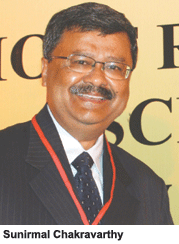The eagerly awaited — and feared — verdict of the National Commission for Protection of Child Rights (NCPCR) against La Martiniere for Boys School, Kolkata (estb. 1836) in the Rouvanjit Rawla corporal punishment case, which resulted in this 13-year-old class VIII student of the school allegedly committing suicide at home on February 12, was delivered on July 20. The communication delivered a guilty verdict against the 171-year-old school and its principal Sunirmal Chakravarthy. “They (i.e. the principal and headmaster of the middle school, L.G. Gunion) not only used corporal punishment on the late Rouvanjit Rawla themselves, they also condoned the use of corporal punish-ment by other teachers. As such they are collectively responsible for creating an atmosphere of fear and trauma in the school,” said the commission, recomm-ending — it has no judicial powers — that both Chakravarthy and Gunion be “removed”. Since then the commission’s recommendation has been endorsed by the Union ministry of women and child development.
Thus far the school’s governing council, which includes several grey eminences of Kolkata including the Rev. Ashok Biswas, Bishop of Calcutta as chairman, hasn’t complied with NCPCR’s recommendation. Last month (June) this private minority institution had defended the principal and said his action had nothing to do with the boy’s suicide which was attributed to depression arising out of family discord. According to Chakravarthy, the governing council is scheduled to meet “any day now” to discuss the NCPCR verdict. “I will abide with the council’s decision,” he says.
 While delivering its verdict NCPCR asked the state government to establish child rights cells in all schools and ensure implementation of the Right to Education Act, 2009 which mandates abolition of corporal punishment in schools.
While delivering its verdict NCPCR asked the state government to establish child rights cells in all schools and ensure implementation of the Right to Education Act, 2009 which mandates abolition of corporal punishment in schools.
With the La Martiniere for Boys management sticking to its stand that the imposition of “mild” corporal punishment to Rouvanjit on February 8 was not the proximate cause of his suicide four days later and standing by Chakravarthy, the only positive outcome of this tragedy, which made national headlines in June when Ajay Rawla stumbled upon some diary entries made by his son Rouvanjit expressing anguish about corporal punishment and humiliation in school, is that West Bengal’s CPM (Communist Party-Marxist) Left Front government has acted with unusual alacrity to implement NCPCR’s July 20 recommendations. On July 27, the school education depart-ment announced the setting up of a state-level Commission for Protection of Child Rights to enforce a total ban on corporal punishment in all schools in the state.
“Teachers resorting to corporal punishment in schools can no longer go scot free. This commission will be legally empowered to impose directives that will be binding on all schools. To be fair to all, the commission will have representation from all sections of society. There will be teachers, parents, lawyers, doctors, psychiatrists, and representatives from minorities as well as the government. The body will deal with any complaint related to corporal punishment, mental torture or stress inflicted on children in schools,” says Partha Dey, minister of education in the Left Front government.
But while the Rouvanjit Rawla case has exercised the minister, it’s hardly a secret that corporal punishment is the rule rather than exception in government schools, specially in rural West Bengal. For example, on May 14, 2009 14-year-old Babli Ghosh, a student of the government sponsored Andal High School, Durgapur was killed after being hit on the head with a wooden duster by an irate teacher. On November 27, 2008, Iftesham Chowdury (8) died after an angry teacher bashed his head against the wall in the government-aided Vidya Bharati School, Mominpur. There have been other cases of child abuse in government aided schools with punish-ment proving fatal. Significantly the NCPCR team probing La Martiniere for Boys didn’t step out of Kolkata, let alone visit any one of these schools. It’s doubtful if the excesses of government school teachers — most of them card-carrying members of the CPM — will invite punitive action in the near future.
Nevertheless if the establishment of the state-level Commission for Protection of Child Rights sends a zero-tolerance message to all of West Bengal’s 68,289 K-12 schools, it’s a good start.
Sujoy Gupta (Kolkata)